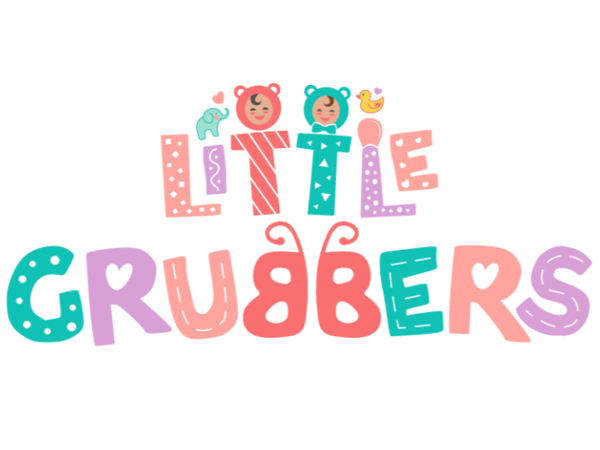When Your Baby Won’t Eat – Should You Worry?
One day, your baby devours their mashed sweet potatoes; the next, they turn their nose up at every bite. If this sounds familiar, you’re not alone! Baby refusing food is a common phase, and while it can be frustrating, it’s usually part of normal development.
Whether it’s due to teething, growth spurts, or simple preference changes, understanding why your baby refuses food and how to gently encourage eating can make mealtime less stressful for both of you.

1. Why Do Babies Refuse Food?
Babies may refuse food for a variety of reasons. Some days, they eat everything in sight, and other days, they barely take a bite. This is completely normal and often linked to developmental changes.
Common Reasons for Food Refusal:
✔ Teething Pain: Sore gums can make eating uncomfortable. Try softer foods or chilled teething-friendly options.
✔ Growth Spurts & Appetite Changes: Some days they’re hungrier than others—just like adults!
✔ Feeling Full: Babies naturally regulate their hunger. If they refuse food, they may not be hungry.
✔ Illness or Discomfort: A cold, ear infection, or tummy trouble can make eating unpleasant.
✔ Distractions: Babies are curious! If there’s a lot happening, they may lose interest in eating.
✔ Independence & Exploration: Around 9-12 months, babies assert their independence, including food choices.
2. When Should You Be Concerned?
While occasional food refusal is normal, there are times when it may indicate an issue.
Signs to Watch For:
🚩 Weight Loss or Poor Growth: If your baby is consistently losing weight or not gaining appropriately, consult a pediatrician.
🚩 Extreme Food Aversions: If your baby refuses most foods for an extended period, it could signal a sensory sensitivity or feeding difficulty.
🚩 Signs of Allergies: Look for symptoms like rashes, vomiting, or trouble breathing after eating certain foods.
🚩 Frequent Gagging or Choking: Some babies struggle with texture transitions, which might require additional feeding support.
3. How to Gently Encourage Your Baby to Eat
If your baby is refusing food, avoid pressuring them. Instead, create a relaxed and enjoyable mealtime atmosphere to encourage healthy eating habits.
Tips to Make Mealtime More Appealing:
✔ Offer a Variety of Textures & Flavors: Babies may refuse food simply because they’re bored! Keep mealtimes interesting with different textures.
✔ Follow Your Baby’s Hunger Cues: If they turn away or push the spoon away, they might not be hungry yet—try again later.
✔ Let Your Baby Self-Feed: Giving them a baby-friendly spoon or finger foods encourages independence and curiosity.
✔ Make Mealtime Fun & Interactive: Play peek-a-boo with food, use silly sounds, or eat together to model good eating habits.
✔ Stick to a Routine: Babies thrive on routine—offer meals at the same time each day to establish expectations.

4. What to Do If Your Baby Rejects a Specific Food
If your baby refuses a particular food, don’t give up too soon! It often takes multiple exposures before a baby accepts a new flavor or texture.
How to Reintroduce Rejected Foods:
✔ Try Again Later: Wait a few days and reintroduce the food in a fun way.
✔ Mix It Up: If they don’t like steamed carrots, try roasted carrots or mashed carrots mixed with something they enjoy.
✔ Pair with a Favorite: Serve the rejected food alongside something they already love.
✔ Make It a Sensory Experience: Let them touch, squish, and explore the food before eating.
5. Keeping Mealtime Stress-Free for Parents
It’s easy to feel frustrated when your baby refuses food, but stressful mealtimes can make things worse.
How to Stay Positive:
✔ Don’t Force It: Pressuring your baby to eat can create negative associations with mealtime.
✔ Celebrate Small Wins: If they take one bite of a new food, that’s progress!
✔ Keep Offering Without Expectations: Even if they refuse today, they might accept it next week.
✔ Make Cleanup Easier: Use easy-to-clean baby bowls and bibs to reduce stress over messes.
Trust Your Baby’s Cues
It’s completely normal for babies to refuse food from time to time. As long as they’re growing well and showing interest in some foods, there’s no need to worry. Keep mealtimes relaxed, offer variety, and let your baby explore at their own pace.
Encourage Self-Feeding with the Little Grubbers 3-in-1 Baby Spoon!
Looking for a spoon that makes self-feeding easier for babies? The Little Grubbers 3-in-1 Baby Spoon™ is:
✅ Designed for small hands to grip easily
✅ Soft and gentle for teething babies
✅ Perfect for encouraging independent eating
💡 Click here to get yours today!

